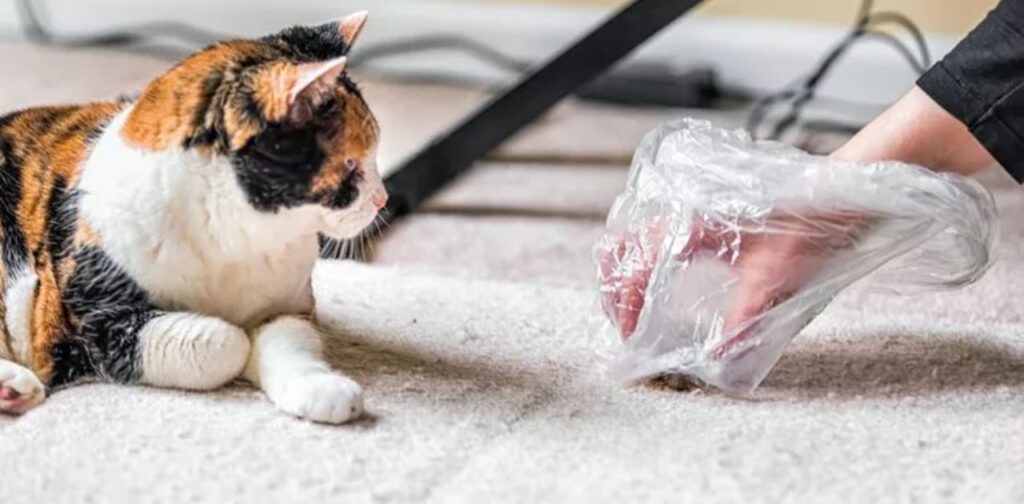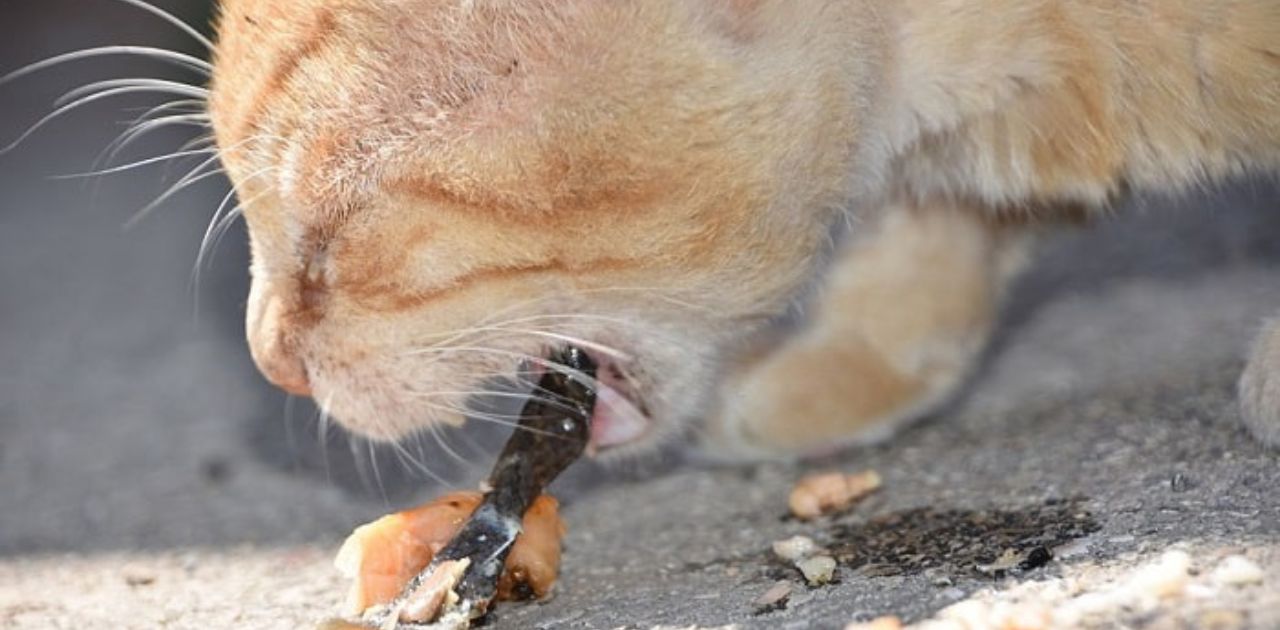Wondering why your cat is throwing up undigested food can be concerning for any pet owner. Cats are known for their fastidious grooming habits and delicate digestive systems, making it unsettling when they regurgitate their meals. While occasional vomiting may not be unusual, persistent or frequent episodes of throwing up undigested food can signal underlying health issues that require attention.
Understanding the potential reasons behind this behavior is crucial for providing appropriate care and ensuring your cat’s well-being. From dietary factors to gastrointestinal issues, various factors can contribute to this phenomenon, and exploring these causes is essential for addressing the root problem and helping your cat lead a healthy, vomit-free life.
Understanding Cat Vomiting
Vomiting in cats can be a concerning issue for pet owners. While occasional vomiting might not always indicate a serious problem, recurrent or persistent vomiting warrants attention. Understanding the causes behind cat vomiting is crucial for maintaining your pet’s health and well-being.
Causes of Vomiting in Cats
Cat vomiting can have various underlying causes, ranging from benign to severe. Some common reasons include:
- Hairballs: One of the most common reasons for vomiting in cats is the formation of hairballs in their digestive tract.
- Dietary Factors: Inappropriate feeding practices, poor-quality food, or sudden dietary changes can trigger vomiting.
- Gastrointestinal Issues: Cats can suffer from various gastrointestinal disorders like gastritis, enteritis, and inflammatory bowel disease (IBD), leading to vomiting.
- Food Intolerance and Allergies: Cats, like humans, can develop intolerances or allergies to certain foods, resulting in gastrointestinal upset and vomiting.
- Parasitic Infections: Internal parasites such as worms or protozoa can invade a cat’s digestive system, causing vomiting among other symptoms.
Understanding these causes is the first step in addressing and managing your cat’s vomiting episodes.
Dietary Factors: Exploring Your Cat’s Diet
A cat’s diet plays a crucial role in its overall health, including its digestive system. Exploring dietary factors can provide insights into why your cat may be vomiting.
Diet and Digestive Health in Cats
A balanced diet is essential for maintaining optimal digestive health in cats. Factors to consider regarding your cat’s diet include:
- Quality of Food: Ensure your cat’s food is of high quality and meets its nutritional needs. Poor-quality food or those containing fillers can lead to digestive issues and vomiting.
- Feeding Practices: Proper feeding practices, including portion control and meal frequency, can prevent overeating and reduce the risk of vomiting.
- Dietary Changes: Cats can be sensitive to sudden dietary changes. Gradually transitioning to a new food can help prevent digestive upset and vomiting.
By paying attention to your cat’s diet, you can promote better digestive health and minimize the risk of vomiting episodes.
Hairballs: The Common Culprit

Hairballs are a frequent occurrence in cats, especially those with long hair or those that groom excessively. Understanding hairballs and how to manage them can help alleviate vomiting in your cat.
Managing Hairballs in Cats
Hairballs form when cats ingest loose hair while grooming, which accumulates in their stomach and forms a ball. To manage hairballs and reduce vomiting, consider the following strategies:
- Regular Grooming: Brushing your cat regularly can help remove loose hair and prevent excessive ingestion.
- Hairball Remedies: There are various hairball remedies available, such as specialized diets or over-the-counter treatments, that can aid in hairball prevention and elimination.
- Hydration: Ensuring your cat stays hydrated can help lubricate the digestive tract and facilitate the passage of hairballs.
By proactively managing hairballs, you can reduce the frequency of vomiting episodes in your cat and improve its overall comfort.
Gastrointestinal Issues: Potential Underlying Problems
Gastrointestinal disorders are a common cause of vomiting in cats and can range from mild to severe conditions. Understanding these issues can help identify and address the underlying problems.
Common GI Disorders in Cats
Several gastrointestinal disorders can affect cats, leading to vomiting and other symptoms. Some common GI disorders include:
- Gastritis: Inflammation of the stomach lining can result in vomiting, often accompanied by other gastrointestinal symptoms such as diarrhea or loss of appetite.
- Enteritis: Inflammation of the small intestine can cause vomiting, diarrhea, and abdominal discomfort in cats.
- Inflammatory Bowel Disease (IBD): IBD is a chronic inflammatory condition of the gastrointestinal tract that can cause vomiting, diarrhea, weight loss, and other symptoms.
Identifying the specific GI disorder affecting your cat is crucial for developing an effective treatment plan and managing its symptoms.
Food Intolerance and Allergies: Identifying Triggers
Food intolerances and allergies can trigger vomiting and other digestive issues in cats. Understanding the signs and identifying potential triggers is essential for managing these conditions.
Allergic Reactions in Cats
Cats can develop allergies to certain ingredients in their food, leading to vomiting and other allergic reactions. Common food allergens in cats include:
- Proteins: Ingredients such as beef, chicken, fish, or dairy products can trigger allergic reactions in sensitive cats.
- Grains: Some cats may be allergic to grains like wheat, corn, or soy commonly found in commercial cat foods.
- Additives: Artificial preservatives, colors, or flavors present in cat food can also cause allergic reactions in some cats.
Identifying and eliminating potential allergens from your cat’s diet can help alleviate vomiting and improve its overall health.
Parasites: Silent Invaders in Your Cat’s System
Parasitic infections are another common cause of vomiting in cats. Understanding the types of parasites and their symptoms can aid in timely diagnosis and treatment.
Parasitic Infections in Cats
Internal parasites such as worms (e.g., roundworms, tapeworms) and protozoa (e.g., Giardia, coccidia) can infest a cat’s digestive system, leading to vomiting, diarrhea, and other symptoms. Key points to consider regarding parasitic infections include:
- Transmission: Cats can contract parasites through ingesting contaminated food or water, exposure to infected animals, or contact with contaminated environments.
- Symptoms: Vomiting, diarrhea, weight loss, and a dull coat are common signs of parasitic infections in cats.
- Prevention and Treatment: Regular deworming and maintaining good hygiene practices can help prevent parasitic infestations in cats. Treatment for parasitic infections typically involves deworming medications prescribed by a veterinarian.
By understanding the risk factors and symptoms associated with parasitic infections, you can take proactive measures to protect your cat’s health and prevent vomiting episodes.
FAQ’s
Is it normal for cats to vomit occasionally?
Occasional vomiting in cats is not uncommon and may be caused by factors such as hairballs, dietary indiscretion, or mild gastrointestinal upset. However, frequent or persistent vomiting warrants attention from a veterinarian.
How can I tell if my cat’s vomiting is a cause for concern?
Signs that your cat’s vomiting may be a cause for concern include frequent or persistent vomiting, vomiting of blood or bile, lethargy, loss of appetite, weight loss, diarrhea, or other accompanying symptoms. If you notice any of these signs, it’s important to seek veterinary care promptly.
What should I do if my cat vomits?
If your cat vomits occasionally and appears otherwise healthy, you can monitor them closely for any changes in behavior or additional vomiting. However, if vomiting is frequent, persistent, or accompanied by other concerning symptoms, consult your veterinarian for further evaluation and guidance.
How can I prevent my cat from vomiting hairballs?
Regular grooming can help reduce the likelihood of hairballs by removing loose fur before it’s ingested. Additionally, providing a high-fiber diet or hairball remedies may aid in hairball prevention. Consult your veterinarian for recommendations tailored to your cat’s specific needs.
Can changes in my cat’s diet cause vomiting?
Yes, sudden dietary changes can disrupt your cat’s digestive system and lead to vomiting. When transitioning to a new food, it’s best to do so gradually over several days to allow your cat’s digestive system to adjust.
Conclusion
In conclusion, understanding the reasons behind cat vomiting is vital for maintaining the health and well-being of our feline companions. While occasional vomiting may be benign, persistent or frequent vomiting warrants attention and evaluation by a veterinarian. Factors such as dietary indiscretion, hairballs, gastrointestinal disorders, food intolerances or allergies, and parasitic infections can all contribute to vomiting in cats.
By addressing these factors proactively, pet owners can help prevent vomiting episodes and ensure their cats lead happy and healthy lives. Regular veterinary check-ups, proper grooming, a balanced diet, and prompt intervention when symptoms arise are key to managing and minimizing vomiting in cats. With proper care and attention, pet owners can provide their cats with the best possible chance of enjoying a life free from frequent vomiting and associated health concerns.
Read Also: Free Subway Sandwiches: You Need A Very Specific Photo On Your Phone

